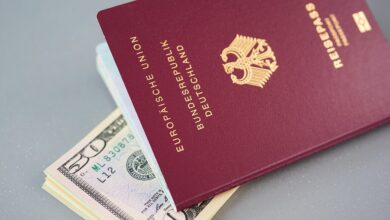How to Save Money While Living in Greece

Living in Greece can be an incredibly rewarding experience, offering a rich cultural heritage, stunning landscapes, and a relaxed Mediterranean lifestyle. However, managing your finances effectively is essential to ensure that you can enjoy all that Greece has to offer without breaking the bank. Whether you’re planning to relocate permanently or spend an extended period in the country, here are practical tips on how to save money while living in Greece.
1. Choose Affordable Housing Options
Housing is often one of the largest expenses when living abroad. In Greece, rental prices vary significantly depending on the location, so choosing wisely can help you save substantially.
- Live Outside Major Cities: Renting in Athens or Thessaloniki can be expensive compared to smaller towns or rural areas. Consider living in less touristy regions like Peloponnese, Epirus, or Central Greece, where rent is more affordable.
- Share Accommodation: Sharing an apartment or house with roommates can significantly reduce costs. Websites like Spitogatos or Facebook groups for expats are great resources for finding shared housing.
- Buy Instead of Rent (If Possible): If you plan to stay long-term, purchasing property might be cheaper than renting over time. The Golden Visa program allows non-EU citizens to invest €250,000 in real estate and gain residency, which could also serve as a cost-effective solution.
2. Take Advantage of Public Transportation
Greece’s public transportation system is relatively inexpensive and efficient, especially in urban areas.
- Use Buses and Metro Systems: Monthly passes for buses and metros in cities like Athens and Thessaloniki are affordable and convenient. For example, an unlimited monthly pass in Athens costs around €30–€40.
- Walk or Bike: Many Greek towns and neighborhoods are pedestrian-friendly, making walking or cycling a viable option for short distances.
- Avoid Taxis Regularly: While taxis are readily available, they can add up quickly. Use them sparingly or opt for ride-sharing apps like Beat, which may offer better rates.
3. Eat Like a Local
Dining out in Greece doesn’t have to be expensive if you know where to go and what to order.
- Eat at Tavernas and Souvlaki Shops: Traditional tavernas and street food vendors offer delicious meals at reasonable prices. A souvlaki wrap costs about €2–€3, while a full meal at a local taverna rarely exceeds €10–€15 per person.
- Shop at Local Markets: Fresh produce, meat, and fish are much cheaper at weekly farmers’ markets (laiki agora) than at supermarkets. These markets also give you a chance to interact with locals and experience authentic Greek culture.
- Cook at Home: Preparing your own meals using locally sourced ingredients can save you a significant amount of money. Greek staples like olive oil, pasta, and vegetables are affordable and widely available.
4. Utilize Free or Low-Cost Activities
Greece offers countless opportunities for free or low-cost entertainment, allowing you to enjoy its natural beauty and cultural richness without spending much.
- Explore Nature: Greece is home to numerous free hiking trails, beaches, and parks. Visit places like Vikos Gorge, Mount Olympus, or Samaria Gorge for unforgettable outdoor adventures at no cost.
- Visit Museums on Discount Days: Many museums and archaeological sites offer free or discounted entry on specific days of the week or month. For instance, the first Sunday of every month is free for EU citizens.
- Attend Festivals and Events: Greece hosts numerous festivals throughout the year, many of which are free to attend. From religious celebrations to music festivals, there’s always something happening.
5. Optimize Healthcare Costs
Healthcare in Greece is generally affordable, but understanding the system can help you avoid unnecessary expenses.
- Register for Public Healthcare: If you’re a legal resident, you can access Greece’s public healthcare system (ESY), which provides quality care at low costs. Contributions are based on income, and many services are either free or heavily subsidized.
- Get Private Insurance (If Needed): For additional coverage, consider affordable private health insurance plans tailored to expats. Compare providers to find the best deal.
- Use Pharmacies Wisely: Over-the-counter medications and prescriptions are often cheaper in Greece than in other countries. Pharmacists can also provide advice for minor ailments, saving you a trip to the doctor.
6. Manage Utility Bills Efficiently
Utility costs in Greece can fluctuate, but there are ways to keep them under control.
- Conserve Energy: Electricity bills can rise during summer due to air conditioning use. Invest in energy-efficient appliances, use fans instead of AC when possible, and turn off lights and devices when not in use.
- Negotiate Internet and Phone Plans: Shop around for competitive deals on internet and mobile phone packages. Providers like Cosmote, Vodafone, and Wind offer promotions for new customers.
- Install Solar Panels (Long-Term Investment): If you own a home, installing solar panels can drastically reduce electricity costs over time, as Greece enjoys abundant sunshine year-round.
7. Leverage Tax Benefits
Greece offers several tax incentives that can help you save money, particularly if you’re a retiree or high-net-worth individual.
- Non-Dom Tax Regime: New residents who qualify for the Non-Dom Tax Regime pay a flat annual tax of €7,000 on foreign-sourced income, regardless of its size. This is ideal for retirees or remote workers earning income outside Greece. Individuals
- Golden Visa Investors: Those investing in real estate through the Golden Visa program benefit from favorable tax treatment, including exemptions on certain types of income.
- Small Business Owners: Entrepreneurs can take advantage of reduced corporate tax rates and grants aimed at boosting local economies.
8. Avoid Tourist Traps
Touristy areas tend to inflate prices, so steering clear of these zones can save you money.
- Shop Away from Tourist Areas: Grocery stores, cafes, and shops near popular attractions charge higher prices. Venture a few blocks away to find better deals.
- Bargain When Appropriate: While bargaining isn’t common in most settings, it’s acceptable at flea markets, roadside stalls, and some small businesses.
- Travel Off-Peak: Flights, ferries, and accommodations are cheaper during the shoulder seasons (spring and autumn). Avoid peak summer months unless necessary.
9. Learn Basic Greek
Knowing even basic Greek can help you navigate daily life more efficiently and potentially save money.
- Communicate Effectively: Speaking Greek helps you negotiate prices, ask for discounts, and avoid misunderstandings.
- Build Relationships: Locals appreciate when foreigners make an effort to speak their language, which can lead to insider tips on affordable places to eat, shop, or visit.
10. Embrace the Greek Lifestyle
Adopting the laid-back Greek way of life can naturally lead to savings.
- Practice Slow Living: Greeks prioritize quality of life over material possessions. By embracing this mindset, you’ll focus on experiences rather than accumulating costly items.
- Enjoy Simple Pleasures: Spend evenings sipping ouzo at a kafeneio (traditional café) or strolling along the seafront—activities that are both enjoyable and inexpensive. Traditional
- Participate in Community Life: Join local events, volunteer, or engage with neighborhood associations to build connections and discover hidden gems that don’t require spending money.



